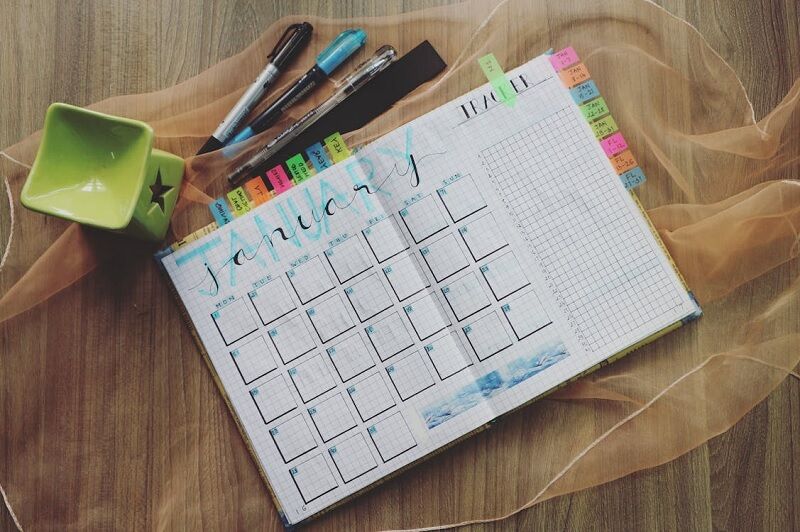Top reasons to maintain a personal journal

Ever wondered how you could improve your memory, break bad habits or start new ones, and essentially get better at anything? The secret might be simpler than you think – keeping a learning journal. Not just a diary, but a tool for personal and professional development that’s backed by science.
In the fast-paced world we live in, our minds are often on autopilot. Journaling, with its tactile experience, has the power to ground us in the present moment. It’s more than just writing; it’s a focused act of handwriting that slows us down, acting as a countermeasure to our incessantly rapid thoughts.
Let’s dive into the science behind this powerful learning tool, and discover why maintaining a learning journal could become your own executive coach. Plus, we’ll share some top tips for starting and maintaining one to help you achieve your goals.
The benefits of personal journaling

Enhancing self-awareness
Personal journaling allows for self-discovery, it serves as a mirror reflecting your thoughts and emotions. Renowned figures such as Albert Einstein, Leonardo da Vinci, Frida Kahlo, and Marie Curie utilised journaling as a tool to record their ideas and personal struggles. By consistently journaling, you’re able to take note of patterns in behaviour and recurrent themes, leading to an increased understanding of self. It enables the metacognition process, assisting in recognising your strengths, weaknesses, and various thought patterns.
Managing stress and anxiety
Amidst the fast-paced fabric of life, feelings of stress and anxiety can quickly become overwhelming. Studies at Michigan State University suggest a direct link between expressive writing and a cool down in brain activity during moments of worry. Effectively, journaling serves as a powerful tool for stress management. A dedicated 15-20 minutes of journaling daily for as long as four months can reflect positively on your health, aiding in managing blood pressure, improving liver functionality, reducing stress-related doctor visits, and boosting your immune system.
Boosting creativity and memory
Besides, personal journaling stimulates your brain to retrieve and record information, reinforcing neural connections for better long-term retention. It allows your brain to freely wander, facilitating the creative process and enhancing memory. Journaling can serve as a doorway to unearthing your hidden creative talents. It’s not limited to just writing – expressing yourself through scribbles, doodles or mixed media all count as journaling.
Practical insights for effective journaling
Navigating the world of journaling demands both strategy and flexibility. Here, we delve into some key aspects of maintaining a personal journal, from setting personal goals to fostering improved writing skills and organising your thoughts.
Setting and achieving personal goals
A personal journal serves as a potent tool for setting and tracking progress toward personal goals. Whether you’re writing down your future aspirations or jotting down new year resolutions, the act of committing your goals to paper increases the likelihood of their achievement. Regularly reviewing your diary offers invaluable insights, reminding you to stay focused and motivated on your path to success. For a systematic approach, consider using a template like the yearly/weekly goals journal template available in Journey’s template library. This tool helps you outline your long-term goals, break them down into weekly action steps, and even allows space for reflection and evaluation. In essence, it’s a roadmap leading you towards your success.
Building better writing skills
In the context of cognitive benefits, maintaining a journal can also elevate your writing skills. The special relationship between the hand and brain while writing helps in improving memory. Also, it fosters the practice of healthy writing habits such as clarity, brevity, and efficiency. Furthermore, as pointed out by Alan Henry at Lifehacker, writers can see extra benefits from keeping a journal. The intellectual exercise of note-taking bolsters cognitive workouts, leading to better memory and improved writing skills.
Organising thoughts and ideas
Clearing mental clutter is an essential aspect of efficient thinking, and a personal journal can help achieve that. Following the concept of a brain dump, as illustrated by Shelby at Little Coffee Fox, it’s like pouring the contents of your mind out — a sort of mental detox. Grab a piece of paper, and write down random thoughts for 10–15 minutes without worrying about neatness, grammar, or order. This act of writing can help organise thoughts, sometimes leading to an added step of creating an actionable to-do list. Here, your journal serves as a tool for taking abstract, formless ideas and grounding them in reality. Go with whatever method brings joy and aligns with your preference.
Types of personal journals to explore

Having unveiled the potential of maintaining a personal journal, it’s time to guide your applicable choices. Diverse types can be explored, each serving unique purposes and aligning with your individual needs.
Dream and gratitude journals
Two interesting types of journals are the dream and gratitude journals. A dream journal enables you to record your dreams, facilitating their analysis for better understanding. On the other hand, a gratitude journal encourages you to jot down the good in each day, fostering positive emotions and outlook. These journals, tailored towards improving your emotional well-being, certainly advocate diverse reasons to maintain a personal journal.
Fitness and food journals
If your goal is physical well-being, then fitness and food journals are worth considering. A fitness journal tracks your workout routines, and progress, and helps manage overall fitness. Comparatively, a food journal records your daily meals and calories taken, supporting balanced diet choices. These personal journal types encourage healthier living and could motivate anyone to sustain journaling.
Sketch and travel journals
For creative thinkers, sketchbooks and travel journals could become your best companions. A sketch journal provides room for expressing creativity and ideas visually, while a travel journal captures adventures, places, experiences, and observations during travels. Such journals resonate stronger with artists and adventurers, further broadening the scope and reasons for maintaining a personal journal.
You can also check out how doing nothing for a day is good for you, Taking time to relax is not laziness; it’s a preventative strategy against mental and physical exhaustion. A complete day off involves more than just extra sleep or leisure—it provides essential downtime for the brain and body to reset and rejuvenate. This practice holds transformative potential for sustaining long-term productivity and well-being.
Latest Thailand News
Follow The Thaiger on Google News:


























